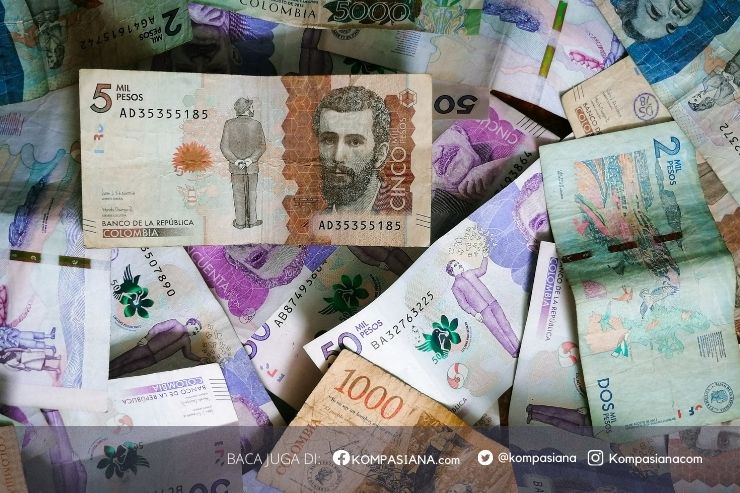Capitalism has not always existed in the world and will not always exist in the world.
Alexandra Ocasio-Cortez
Quoting Alexandra Ocasio-Cortez is perhaps the most apt way to begin a discussion on what the future holds for capitalism. Her rise to power in the political arena was almost miraculous. Having almost no electoral political experience before, she managed to defeat Joe Crowley, an esteemed member of the Democratic establishment and the leader of the Democratic caucus in the House of Representatives, in the primary for New York's 14th Congressional District. Despite being outspent 18 to 1 in the election campaign, her unabashed support for socialism was apparently more than enough to convince voters of her ability to champion their interests. Her victory in spite of overwhelming odds is only possible because of one simple fact: the people are exhausted, exhausted of the age-old supremacy of the elites and the age-old system that sustains it - capitalism.
Francis Fukuyama in his seminal work The End of History and the Last Man proudly proclaimed the end of 'history' as we know it. Written in 1992 after the end of the Cold War which saw the fall of the Soviet Union and the demise of the global communist order, the book arrogantly declared the triumph of capitalism and the liberal democracy that sustains it as the overarching ideology in the final stage of mankind's historical development. Just a quarter of a century later, however, we are faced instead with a starkly different reality. Capitalism is hemorrhaging in whatever place it is found. Inequality is on the rise with the resulting economic anxiety propelling populist tyrants and dictators into power with their heavenly promises of nationalistic nirvana amidst societal and economic chaos due to unfettered globalization and unrestrainable power of established elites. Far from seeing the end of history, what we are witnessing instead is the end of capitalism.
A clear definition of capitalism must first be established in any discussion of its structural deficiencies. Capitalism is hereby defined as the economic system that supports the process of capital accumulation by an elite class under the belief that such process will generate welfare and prosperity for society as a whole. Adam Smith's concept of the invisible hand is perhaps the best illustration of such definition of capitalism. From said definition, it can be seen that capitalism's legitimacy as mankind's natural economic organizing system is highly dependent on it sustainably and continually delivering the promise of material wealth to the masses. This no longer seems to be the case in many instances. Particularly since the 1980s with the advent of neoliberalism (capitalism on steroids), capitalism has instead metamorphosed into a system allowing the least productive members of society to leech upon the productive labor of those who have contributed much to the welfare of society. A society of rent-seekers, rather than a society of producers, is what capitalism in its late stage has allowed to thrive.
Before delving further into the issue at hand, one may also ask the question: Why should we, students of economics, be concerned about capitalism in its deathbed? Why should we make it a centrality in all of our efforts and concerns? The answer is simple. Despite all the usual jargons of economics being a study of choices, economics is first and foremost the study of the dominant mode of production in society and that mode is what we call as capitalism: the utilization of productive forces for the accumulation of capital. It is no coincidence that Adam Smith's Wealth of Nations was published only a few years after the invention of the steam engine which precipitated the rise of industrial capitalism as we know it today. Economics and capitalism are inseparable conjoined twins since birth, one cannot exist without the other. To study economics is to inevitably study capitalism in all its details and complexities, and vice-versa.
This also leads us to the necessity of understanding capitalism's impermanence. We need to first break the myth of capitalism as a natural system, a utopia that humanity will always teleologically aspire to. Forgetting that capitalism has artificial man-made root origins of its own makes it easy for us to succumb into this myth of its eternal divine-like power in organizing society and its mode of production. Seldom do we recognize that capitalism has only existed for the past 300 years and is only a stage in humanity's long-run historical trend.
Karl Polanyi's The Great Transformation made compelling arguments that prior to capitalism, humanity has always lived in economic systems of reciprocity and redistribution where people defined themselves as greater than the product of their labor. Reciprocity is defined as the mutual exchange of goods or services as part of long-term relationships whereas redistribution implies the existence of a strong political centre such as kinship-based leadership, which receives and then redistributes subsistence goods according to culturally specific principles. From the seafaring Pacific Islanders of New Guinea to the agrarian feudal society of Western Europe, these were the principles that once had primacy in determining the economic affairs of pre-capitalist societies. Nationwide markets, stock exchanges, corporations, and institutions that we would normally associate with capitalism are very recent artificial inventions that started slowly emerging in the medieval era due to a breakdown in the feudal order in 14th century Europe. Acknowledging that capitalism has artificial beginnings of its own means that its ending can also be engineered artificially. The maxim "whatever begins, must end" holds important truth here.
A clear symptom of capitalism's demise can perhaps be seen in the phenomenon called as 'The Great Decoupling'. The phenomenon refers to the general observation that since the 80s, real wage of workers has largely failed to catch up with the rise in productivity and GDP per capita. This would suggest that the workers, the individuals responsible for the creation of wealth, have not received the just compensation that they deserve for the fruit of their labor. The interest of labor is increasingly being subverted by the interest of capital. This phenomenon is also one of the main driving factor for the level of inequality that we see today.
Already, we are seeing unprecedented levels of inequality completely unprecedented before in recent modern history. This is a level of inequality that is unjustifiable in every regard. The 1% did not arrive at their position of wealth due to sheer entrepreneurial ability and superhuman hard work. Most arrived at their position through the back of inherited wealth and systematic discrimination and exploitation of the marginalized classes which are becoming more pronounced with each passing day. Even if they did, in what way is it fair and sensible that only a handful few should have access to what can otherwise deliver happiness and prosperity to the lives of many? This phenomenon of inequality and the resulting prevalence of inherited wealth in capitalism is perhaps best illuminated in Piketty's Capital in the Twenty-First Century.
Piketty made crucial arguments to express just how much inequality has skyrocketed in our modern era. Capital has tended over time to grow faster than the overall economy. Income from capital is invariably much less evenly distributed than labor income. Together these amount to a powerful force for increasing inequality.
nother, equally crucial, sign of capitalism's downfall can be seen in its propensity to crisis. Minsky's Financial Instability Hypothesis, rarely brought up in mainstream economics before the 2008 Global Financial Crisis, can provide us with explanations on why there will always be a tendency to crisis in capitalism. In explaining that stability in a system dominated by financial capitalism is in fact destabilizing, Minsky provided compelling reasons why crisis is an inevitable and inherent part of capitalism. There is also the fact that despite of the ruin caused by the Global Financial Crisis, the agents of Wall Street seem to not have learned from their previous blunder. The prevalence of high-frequency trading, the continuous innovation of increasingly risky financial products and derivatives, and the pervasive financialization and speculation of aspects of the real economy have all contributed to this systemic risk towards crisis. Part of the explanation for this seeming nonchalance of the financial sector is due to how the government, the actor supposed to regulate the excesses of finance have largely been impotent. Few of the Wall Street executives that were responsible for the 2008 crisis were imprisoned, and even the Dodd-Frank Act, the financial regulation law enacted to prevent the crisis from ever happening again, is currently faced with threats of rollback and alteration.
When we relate this back to the definition of capitalism used beforehand, it is crystal clear that capitalism has in fact lost its legitimacy. Inequality and crisis has instead become a regular feature of the capitalist system. It no longer is delivering the prosperity that it is supposed to deliver to everyone regardless of class, race, and background.
If we are to look at history, it is quite striking how the current predicament with capitalism exhibit many parallels with capitalism pre-WW1 and the Great Depression. Inequality was skyrocketing, trust in politics was at its lowest with the elite having undue power in politics at the expense of the poor and the unprivileged. It seemed as if capitalism was well on it way to ruins, and it almost did ruin itself to an extent. The Great Depression and the World Wars brought untold destruction and suffering to many millions. Yet, capitalism back then remained resilient and adaptable and the elites at the top were willing to make sacrifices and concessions amidst the spectre of working class revolt. Franklin Roosevelt's New Deal in the United States, for example, gave new powers to the working class. The New Deal strengthened the social safety net and gave room for the interests of labor to mushroom. The next few decades until the 1980s saw the 'Golden Age of Capitalism' where growth was robust, inclusive and even the working class enjoyed newfound prosperity inaccessible to many before. Capitalism is ironically strongest when the owners of capital are at their weakest. This, of course, leads us to the natural question: will the same thing happen again in the future or is the demise of capitalism in fact inevitable? The answer is not yet clear. So far, signs still point out to the latter. The 2008 crisis has not brought forth the same kind of responses and concessions by those in power like The Great Depression did. It's no wonder then that people like Trump are in power, his rise was largely propelled by the economic anxiety resulting from inequality and crisis. Even socialism, once a taboo word and concept in American politics, is increasingly enjoying newfound support among the public. Either way, the face of capitalism will definitely change, with that change possibly leading to its demise as the supreme economic system of our day.
In essence, Ocasio-Cortez might be right. Capitalism will not always exist in the world.
Faris Abdurrachman | Staff Kajian Kanopi 2018 | Ilmu Ekonomi 2017
References Abdurrachman, Faris. 'The Economic Dimensions of Populism.'" KOMPASIANA, Kompasiana.com, 4 May 2018, www.kompasiana.com/kanopi_febui/5aec529dcf01b47be868bb52/the-economic-dimensions-of-populism. "Can We Learn from Minsky Before the Next Crisis?" Economic Questions, 1 Feb. 2018, theminskys.org/can-we-learn-from-minsky-before-the-next-crisis/. Fox, Justin. "Piketty's 'Capital," in a Lot Less than 696 Pages." Harvard Business Review, 2 Nov. 2014, hbr.org/2014/04/pikettys-capital-in-a-lot-less-than-696-pages. Frisby, Dominic. "Wealth Inequality Is Soaring -- Here Are the 10 Reasons Why It's Happening | Dominic Frisby." The Guardian, Guardian News and Media, 12 Apr. 2018, www.theguardian.com/commentisfree/2018/apr/12/wealth-inequality-reasons-richest-global-gap. Fukuyama, Francis. The End of History and the Last Man. Hamish Hamilton, 1992. Milanovic, Branko. "Globalinequality." Did Socialism Keep Capitalism Equal?, 1 Jan. 1970, glineq.blogspot.com/2015/08/did-socialism-keep-capitalism-equal_52.html. Piketty, Thomas. Capital in the Twenty - First Century Thomas Piketty ; Translated by Arthur Goldhammer. London, 2014. Polanyi, Karl. The Great Transformation: the Political and Economic Origins of Our Time. Beacon Press, 2014. Rappeport, Alan, and Emily Flitter. "Congress Approves First Big Dodd-Frank Rollback." The New York Times, The New York Times, 22 May 2018, www.nytimes.com/2018/05/22/business/congress-passes-dodd-frank-rollback-for-smaller-banks.html. Shaxson, Nicholas. "The Finance Curse: How the Outsized Power of the City of London Makes Britain Poorer." The Guardian, Guardian News and Media, 5 Oct. 2018, www.theguardian.com/news/2018/oct/05/the-finance-curse-how-the-outsized-power-of-the-city-of-london-makes-britain-poorer. "Unit 1: The Origins of Capitalism." Unit 1: The Origins of Capitalism | Solidarity Federation, www.solfed.org.uk/a-s-history/unit-1-the-origins-of-capitalism. Bernstein, Amy & Raman, Anand. "The Great Decoupling: An Interview with Erik Brynjolfsson and Andrew McAfee" Harvard Business Review, June 2015, https://hbr.org/2015/06/the-great-decoupling Yglesias, Matthew. "Elizabeth Warren has a plan to save capitalism" Vox, 5 Aug. 2018, https://www.vox.com/2018/8/15/17683022/elizabeth-warren-accountable-capitalism-corporations











